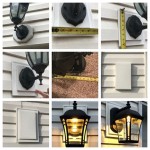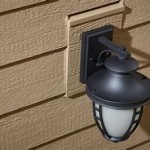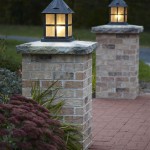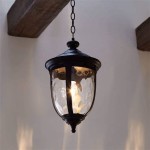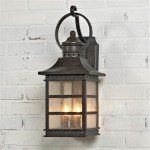LED Outdoor Lighting Systems: Illuminating Efficiency and Aesthetics
Outdoor lighting plays a crucial role in enhancing both the functionality and aesthetics of any outdoor space. From illuminating pathways and driveways to highlighting architectural features and creating inviting ambiance, outdoor lighting systems enhance safety, security, and visual appeal. With the advent of LED technology, outdoor lighting has undergone a significant transformation, offering numerous advantages over traditional lighting solutions.
LED outdoor lighting systems are gaining immense popularity due to their exceptional efficiency, long lifespan, and versatility. These systems utilize light-emitting diodes (LEDs) that produce brighter, more focused light with minimal energy consumption. This article delves into the key features, benefits, and considerations of LED outdoor lighting systems, providing a comprehensive understanding of this innovative technology.
Exceptional Energy Efficiency
One of the most prominent advantages of LED outdoor lighting systems is their exceptional energy efficiency. LEDs convert a higher percentage of electrical energy into light compared to traditional incandescent or halogen bulbs, significantly reducing energy consumption. This translates to lower electricity bills, making LED systems a cost-effective choice in the long run. The energy savings can be particularly substantial for larger outdoor spaces or areas requiring extended lighting hours.
LEDs also produce less heat than traditional bulbs, reducing the risk of overheating and fire hazards. This heat reduction further contributes to energy efficiency, as less energy is wasted as heat. The lower heat output also makes LEDs ideal for illuminating delicate landscaping features without causing damage.
Longevity and Durability
LED outdoor lighting systems are renowned for their exceptional longevity and durability. LEDs have a significantly longer lifespan than traditional bulbs, typically lasting up to 50,000 hours compared to 1,000 hours for incandescent bulbs. This extended lifespan reduces the frequency of bulb replacements, minimizing maintenance costs and downtime. Furthermore, LED bulbs are highly resistant to shocks and vibrations, making them ideal for outdoor applications where they are exposed to harsh elements.
The durable nature of LEDs also contributes to their environmental sustainability. The reduced frequency of bulb replacements minimizes waste, contributing to a more environmentally friendly lighting solution. LEDs contain no mercury, a hazardous substance found in traditional fluorescent bulbs, further enhancing their eco-friendliness.
Versatility and Design Flexibility
LED outdoor lighting systems offer unparalleled versatility and design flexibility. With a wide range of LED fixtures available, including spotlights, floodlights, path lights, and string lights, designers have ample choices to create the desired lighting effect. LEDs can be incorporated into various materials, such as metal, plastic, and glass, allowing for seamless integration into any outdoor architectural design.
Furthermore, LED technology allows for precise control over light color and intensity. Different LED fixtures can be programmed to emit specific colors, enabling the creation of visually striking and dynamic lighting displays. This color customization feature enhances the aesthetic appeal of outdoor spaces, transforming them into captivating environments.
Key Considerations for LED Outdoor Lighting Systems
While LED outdoor lighting systems offer numerous advantages, certain key considerations must be taken into account when choosing and installing these systems. These factors include:
1. Light Output and Distribution
It is essential to consider the required light output and distribution for each specific application. Different LED fixtures have varying lumen outputs and beam angles, influencing the intensity and spread of light. Accurate assessment of lighting needs ensures adequate illumination of pathways, driveways, and other outdoor areas while avoiding glare or light pollution.
2. Color Temperature and Rendering
LEDs are available in various color temperatures, ranging from warm white to cool white. The color temperature affects the overall ambiance and visual appeal of the illuminated space. Warm white tones create a cozy and inviting atmosphere, while cool white tones offer a more modern and crisp look. It is important to choose the appropriate color temperature to complement the surrounding architecture and landscaping.
3. Installation and Maintenance
Proper installation of LED outdoor lighting systems is crucial for optimal performance and longevity. It is recommended to engage professional electricians for installation to ensure compliance with safety standards and maximize system efficiency. Regular maintenance, including cleaning and inspecting fixtures, is also important to maintain optimal light output and extend the lifespan of the system.
LED outdoor lighting systems have revolutionized outdoor illumination, providing a compelling combination of energy efficiency, longevity, and design flexibility. By embracing this innovative technology, homeowners and commercial property owners can enhance the functionality, aesthetics, and sustainability of their outdoor spaces. With careful planning and consideration of key factors, LED outdoor lighting systems can create a visually stunning and energy-efficient outdoor experience.

The 3 Best Smart Outdoor Lights For Backyards Of 2024 Reviews By Wirecutter

Illuminate Your Garden With Landscape Outdoor Lighting System Bondilights

Outdoor Landscape Lighting System Led Displays

How Much Energy Do Outdoor Led Lights Really Save Lighting Perspectives

Outdoor Lighting Pezzotti Brothers Landscaping Tree Service

Landscape Lighting Swimming Pool Remote Control

Ip44 De Lights Lamps At Light11 Eu

Ways To Save Money On Your Outdoor Lighting System

4 Reasons To Upgrade Your Traditional Outdoor Lighting System Led Perspectives

5 Ways To Transform Your Outdoor Space With Exterior Lighting Design
